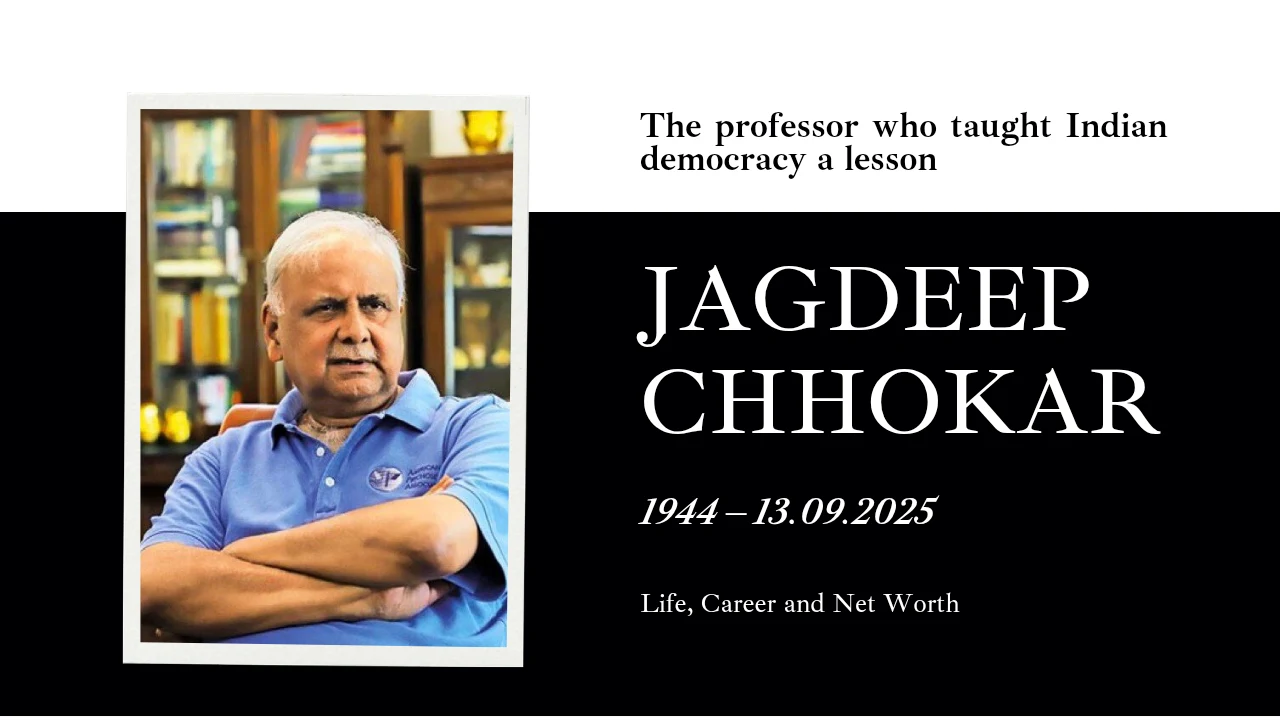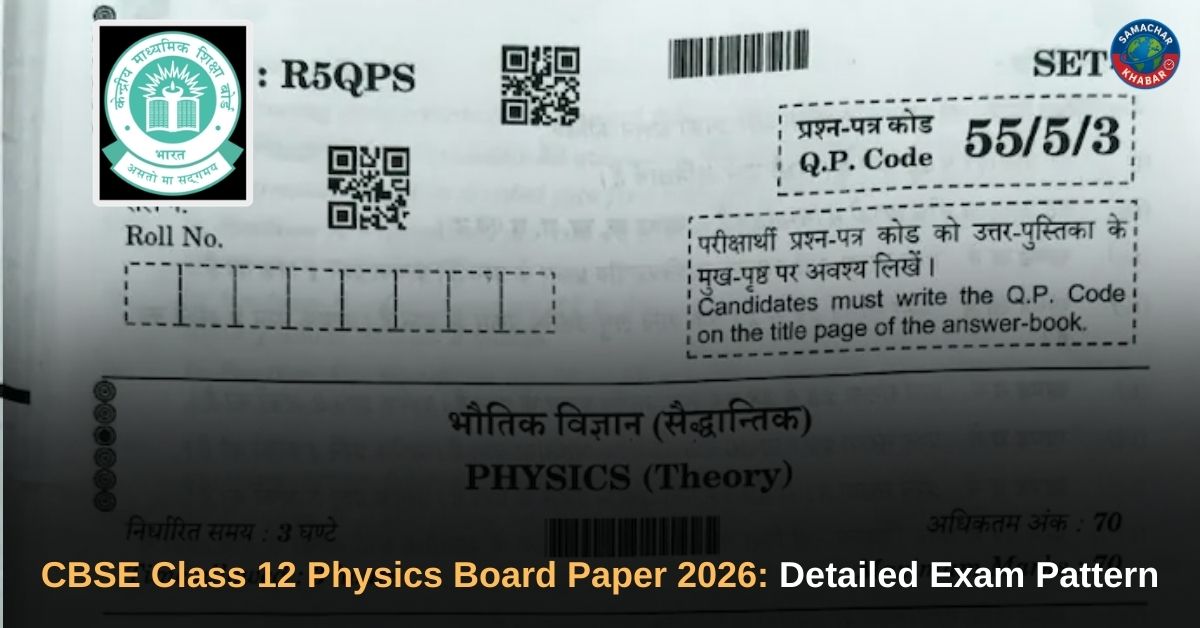In a nation where political narratives often dominate the headlines, few individuals manage to reshape the democratic landscape from the outside. Professor Jagdeep Chhokar was one such individual. A distinguished academic from the Indian Institute of Management (IIM) Ahmedabad, he chose a path of fierce, unwavering activism after retirement.
As the co-founder of the Association for Democratic Reforms (ADR), he dedicated his life to a singular mission: to cleanse Indian politics and empower citizens with the right to know. His passing at the age of 81 marks the end of an era, but his legacy continues to be a guiding light for citizen-led reform.
The Life and Career of Jagdeep Chhokar
Before he became a thorn in the side of the political establishment, Professor Chhokar had a storied career spanning multiple fields.
From Engineer to Esteemed Professor
- Early Career: Chhokar began his professional life as a mechanical engineer with the Indian Railways. This early exposure to complex systems and structures likely laid the groundwork for his later methodical approach to dismantling political opacity.
- The Academic Turn: He transitioned into academia, earning an MBA from Delhi University and a Ph.D. from Louisiana State University. This led him to the prestigious Indian Institute of Management, Ahmedabad (IIM-A), where he served as a professor of Organizational Behaviour for over two decades. He even held positions as Dean and Director-in-charge, shaping the minds of countless future leaders.
The Birth of ADR and a New Calling
The pivotal moment in Jagdeep Chhokar’s life came in 1999. Following the Kargil conflict, he and a group of IIM-A colleagues, including Trilochan Sastry, were shocked by the lack of transparency in election candidates’ nomination papers. This moment of collective civic indignation was the catalyst for the formation of the Association for Democratic Reforms (ADR).
Their initial Public Interest Litigation (PIL) filed with the Delhi High Court sought a simple yet revolutionary change: mandatory disclosure of a candidate’s criminal, financial, and educational background. This single act of demanding accountability was the first step in a long and arduous battle that would fundamentally alter the relationship between politicians and the public.
How ADR and Jagdeep Chhokar Changed Indian Democracy
The impact of ADR’s work, under Chhokar’s leadership, is nothing short of transformative. They leveraged the power of law and public information to force systemic change.
Landmark Supreme Court Rulings
ADR’s legal battles resulted in several landmark Supreme Court judgments that have become cornerstones of Indian democracy.
- Mandatory Disclosure (2002): The Supreme Court made it mandatory for all election candidates to file an affidavit disclosing their criminal history, assets, liabilities, and educational qualifications. This judgment, a direct result of ADR’s petition, was a monumental victory for transparency.
- Right to Reject – NOTA (2013): ADR’s advocacy for the “None of the Above” (NOTA) option on electronic voting machines was approved by the Supreme Court, giving voters the power to actively reject all candidates. This empowered citizens and provided a mechanism for expressing dissatisfaction.
- Striking Down Electoral Bonds (2024): In perhaps their most significant recent victory, ADR, with Chhokar as a key petitioner, successfully challenged the controversial electoral bonds scheme. The Supreme Court declared the scheme unconstitutional, citing its opacity as a threat to a free and fair electoral process. This decision underscored Chhokar’s conviction that the public has an “inalienable right to know the source of political funding.”
A telling statistic from an ADR report highlights the urgency of their mission: a 2025 analysis revealed that nearly half of all Indian ministers had declared criminal cases against themselves, with 27% facing serious charges. This data, made public by ADR’s tireless work, underscores the scale of the challenge and the importance of their fight for clean politics.
Also Read: Sushila Karki: Nepal’s Gen Z Pick for PM
The Unseen Battle: Career, Finances, and Net Worth
While much is known about Chhokar’s public activism, a detailed breakdown of his personal net worth is not publicly available. As a professor at a premier institution like IIM-A for over two decades, he would have earned a respectable salary. However, his life’s work was clearly not driven by financial gain. He dedicated his post-retirement years to activism, a mission that consumed his time and energy. His net worth is best measured not in rupees, but in the invaluable reforms he brought to India’s democratic system.
- A Life of Principle: Chhokar’s decision to leave a life of comfort and academic acclaim for the unpredictable world of activism speaks volumes about his character. He was a man driven by a profound belief in citizen power and the principles of accountability.
- A Modest Activist: His work with ADR and other organizations like the Aajeevika Bureau, which focuses on internal migration, shows a consistent dedication to social justice. His life was a testament to the idea that true wealth lies in the impact one leaves on society.
A Legacy of Citizen Power
Professor Jagdeep Chhokar‘s life offers a powerful lesson: that democracy is not a spectator sport. It requires the continuous engagement of informed and determined citizens. His work with ADR empowered voters, held politicians accountable, and reminded the nation that a healthy democracy is built on a foundation of transparency and trust.
His legacy is not just in the laws he helped enact but in the precedent he set for citizen-led reform. His story is a powerful call to action for every Indian to engage with the democratic process, armed with knowledge and a passion for change.
What lesson has Jagdeep Chhokar’s life taught you about the power of the citizen? Share your thoughts and stories in the comments below!














